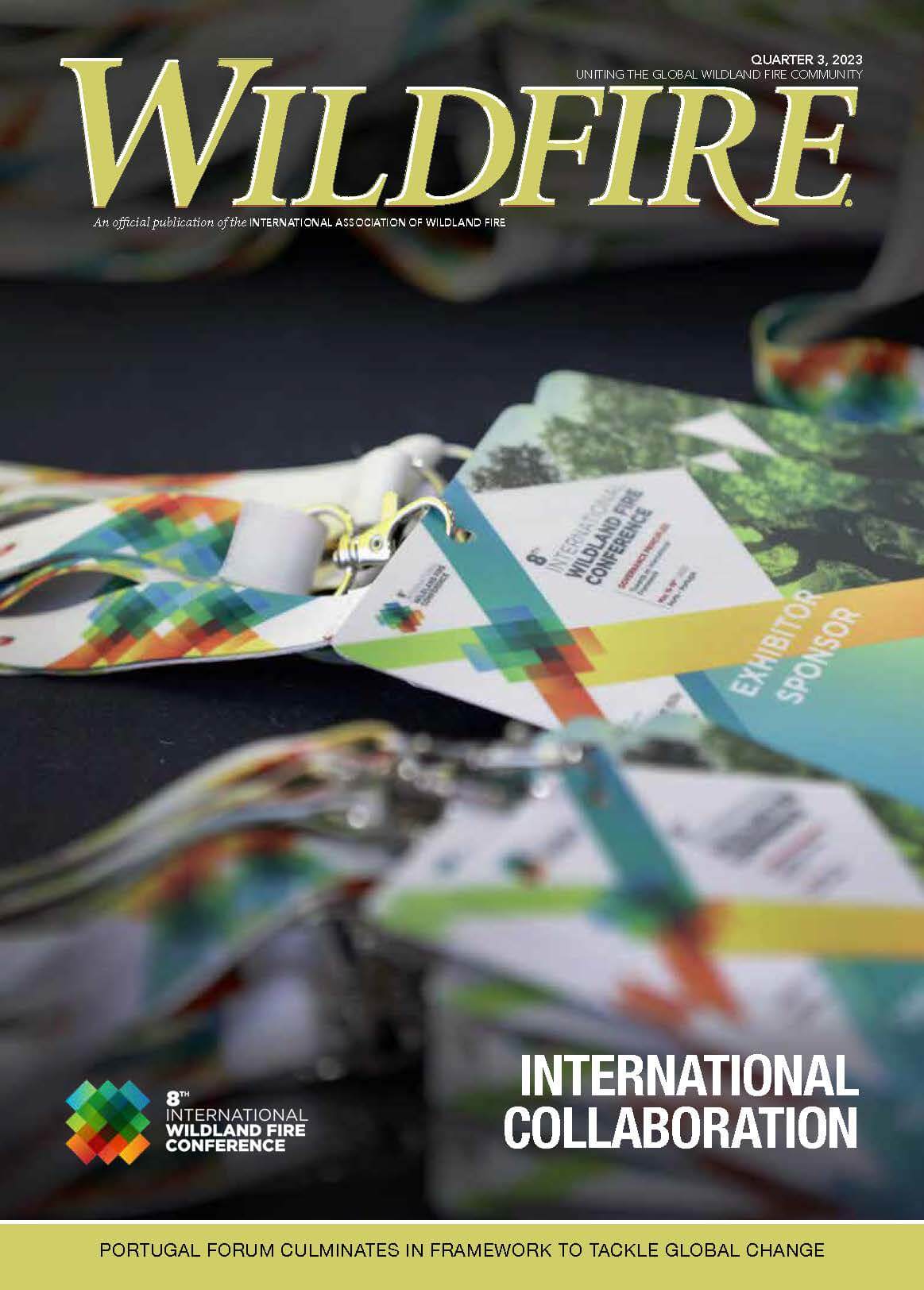IAWF NEWS
ICFFR TO HOST 2022 SAFETY SUMMIT
BY DOMINGOS VIEGAS
When the 9th International Conference on Forest Fire Research (ICFFR) begins in November, 32 years will have passed since the first conference took place in Coimbra, Portugal, in 1990. Back then, 87 participants from 12 countries presented 63 oral communications, mainly related to fire behavior and modelling.
Gathering every four years, the ICFFR has built a reputation for providing a hospitable atmosphere while striving to be one of the top scientific forums in the field. In 2018, we hosted almost 250 participants, and speakers presented more than 200 oral communications and 45 posters in the four days of the event.
From Nov. 11-18, the Forest Fire Research Centre of ADAI, at the University of Coimbra (ADAI-CEIF), will once again organize the ICFFR in Coimbra.
This edition of the conference is proving to be a challenge to organize, during a time in which the world is dealing with the COVID-19 pandemic. We are preparing the conference to be an in-person event. We are, of course, considering options, in the case that the health situation in Portugal or worldwide imposes restrictions.
In the 2022 IX ICFFR we are proud to once again be associated with the International Association of Wildland Fire (IWAF) and host the 17th International Wildland Fire Safety Summit, after hosting the 14th Conference on Fire and Meteorology and the Wildland Fire Safety Summit in Luso in 2002, together with the IV ICFFR.
The conference has had many truly memorable moments in the past, from the keynotes to the visits to ADAI-CEIF’s Forest Fire Research Laboratory. We recall many prominent researchers who participated in previous editions of the conference, several of them delivering invited lectures, including Richard Rothermel, Stephen Pyne, Michael Weber, Philip Thomas, Louis Trabaud, Malcolm Gill, Michael Fosberg, Ricardo Velez, Jack Cohen, Patricia Andrews, Robert Martin, Brian Stocks, Richard Thornton, Albert Simard, Martin Alexander, Wendy Anderson, Anatoly Grishin, Philip Chenney, Mark Finney, Bret Butler, Susan Conard, Emilio Chuvieco and Mike Flannigan. Flannigan has been the chair of the scientific committee since 2006 and contributed strongly to the high quality of the evaluation process of the paper submissions.
As has been the custom, preceding the conference, two short courses will be offered.
On Nov. 11, the 6th Short Course on Fire Safety will be aimed mostly at operational personnel but is also of interest to researchers and students. The course is focused on presenting the advances on methods, protective equipment, and technology to improve fire safety both to operational personnel and to civilians. This 6th edition will be co-ordinated by Jason Sharples, from the School of Science at the University of New South Wales, Canberra, Australia. He succeeds Bret Butler, from the USDA, who has organized the last three editions. This short course is usually bi-lingual, with simultaneous translation in English and Portuguese.
On Nov. 12-13, the 9th Short Course on Fire Behavior will take place, mainly aimed at researchers and students, given the more scientific focus. The objective of the course is to share the more recent and advanced studies on fire behavior modelling, based on the work presented by the top scientist who are invited. As in the last editions, Albert Simeoni, from the Worcester Polytechnic Institute will be the co-ordinator. We hold a special place in our memories of the first edition of this short course, as it was co-ordinated by Richard Rothermel in 1990.
Speaking of Rothermel, next year will be the fiftieth anniversary of his original and outstanding publication, Mathematical Model on Fire Behavior Modeling, that is still considered the heart of many fire behavior modelling and simulation tools. For this reason, we intend to promote a special session dedicated to this milestone in fire science.
One of the highlights of the conference is usually the visit to our Fire Research Laboratory. The lab has several combustion tables and tunnels, mostly of our own design and construction, that facilitate the study of many different aspects of fire behavior; it is the largest laboratory in Europe fully dedicated to research in this field.
At the end of the conference the traditional field trip will take the participants to discover the natural beauty of Portugal, while we explore specific regions that have experienced wildfires and their impact.
For more information on this conference please visit www.adai.pt/icffr
